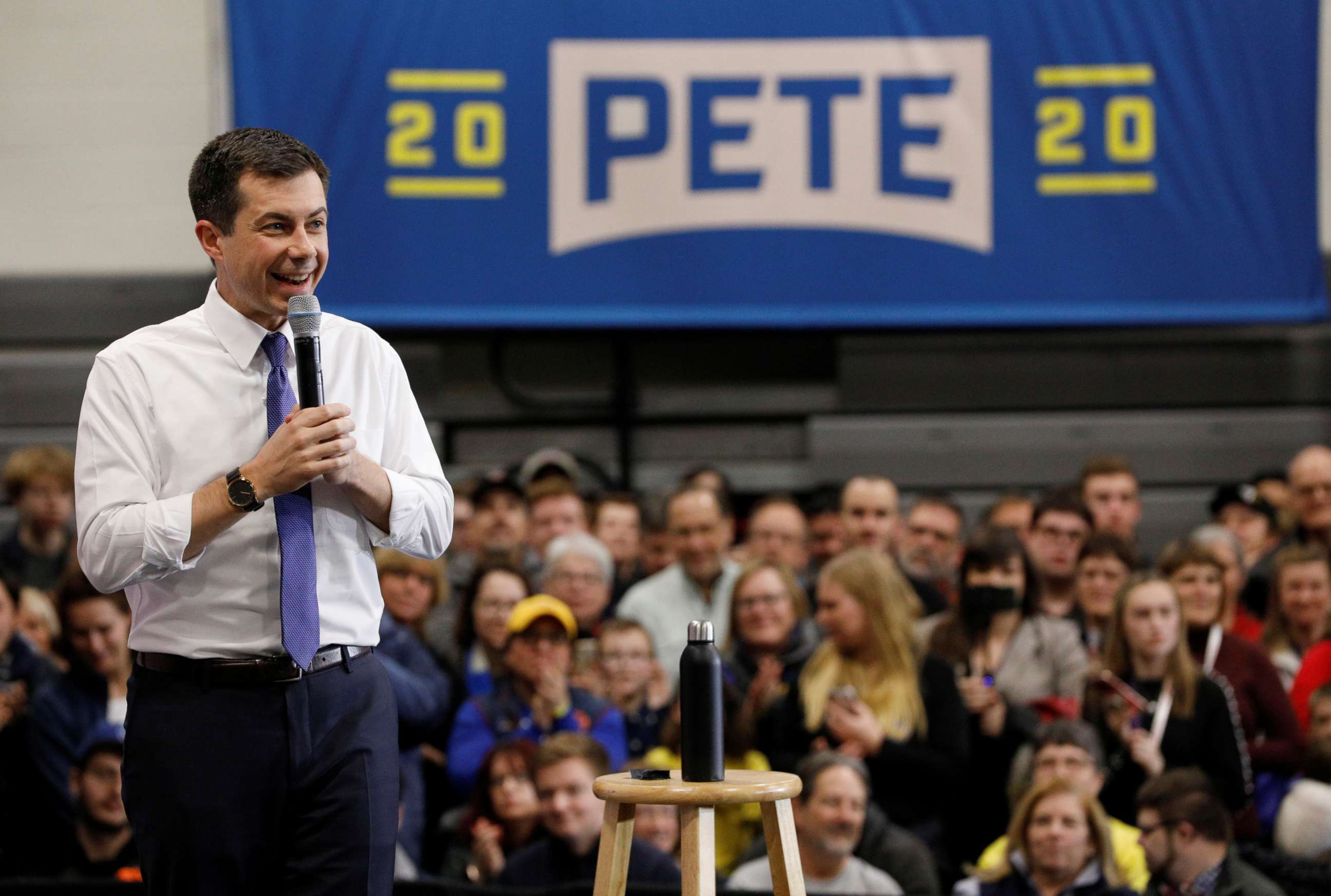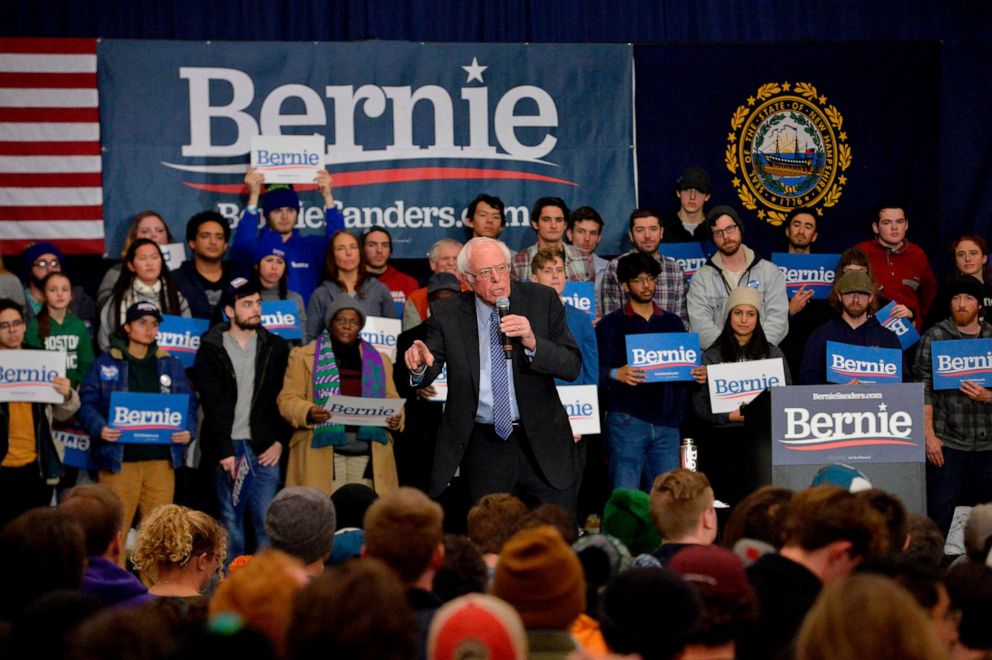Iowa Democratic Party projects Buttigieg wins most delegates, but Sanders a close 2nd
The Iowa Democratic Party projected that former South Bend, Indiana, Mayor Pete Buttigieg would be awarded the most pledged delegates to the Democratic National Convention from the Iowa caucuses, but Vermont Sen. Bernie Sanders trailed only slightly behind him.
The state party projected that Buttigieg would get 14 national delegates, and that Sanders would get 12 national delegates. Also projected to be awarded delegates were Massachusetts Sen. Elizabeth Warren, with eight pledged delegates, former Vice President Joe Biden, with six pledged delegates, and Minnesota Sen. Amy Klobuchar, with one pledged delegate.
Nearly a week after the first contest of the election cycle, the IDP made corrections throughout the weekend to data from 55 precincts, which represents a small fraction -- just 3% -- of all precinct locations for this cycle's Iowa caucuses.
The updated data did little to change where the candidates stood Thursday night, when the IDP had released data from 100% of precincts.

Earlier that day, the chairman of the Democratic National Committee, Tom Perez, had called for a recanvass of the caucuses amid reports of errors and inconsistencies in the results, which were significantly delayed due to issues with a new mobile application used to report results from the precincts to the state party.
According to the state party's delegate selection plan, a candidate must be the one to request a recanvass for it to happen.
Ultimately, a full recanvass has not been requested by any candidate, but the Buttigieg, Sanders and Warren campaigns, along with county chairs, submitted requests to review precinct level data, according to an Iowa Democratic Party official.
In total, the party reviewed reports from 95 precincts, as requested by the candidates and county chairs. Corrections were only made to 55 precincts because four requests were duplicative and for the remaining 36, the math worksheets were found to match what was reported.
However, after the updates were released Sunday, Sanders campaign manager Faiz Shakir told CNN it "could expect action from the Sanders campaign" on Monday, claiming that with a review of more precincts, the party would project Sanders and Buttigieg to get the same amount of delegates.
"You can be expecting us to ask the Iowa Democratic Party for a recanvass of the discrepancies we have identified and found for them, and we'll be searching for and identifying even more," Shakir in an interview on CNN. "It's been handled incompetently from our perspective and we will be asking them to take a look at some of the obvious discrepancies that have affected our count."
He added, "I think, after it is all said and done, it should be the case that we have the same number of national delegates as Pete Buttigieg. So we'll see how this plays out."

On Monday, the IDP announced in a press release that it had received requests from both the Sanders and Buttigieg campaigns. Sanders' campaign requested a recanvass for 28 precincts, and Buttigieg's campaign requested a recanvass for 66 precincts and all in-state satellite caucus precincts, which brought the total requested recanvasses to 143 precincts, after duplicate requests were removed.
Within 48 hours, the state party's Recount/Recanvass Committee will report back to the campaigns its assessments regarding any inconsistencies between the reported results and the official results recorded on caucus night at each precinct.
According to the updated data from the IDP, Buttigieg had a slight edge over Sanders -- 26.2% vs. 26.1% -- in state delegate equivalents, or state delegate estimates, according to an analysis of data from the IDP. This is the metric used to determine how national delegates are allocated.
However, in both the first and final alignments, Sanders had more people supporting him.
According to data from the IDP, in the first alignment of the caucus, considered to be the "popular" vote, Sanders had 25% of the vote and Buttigieg had 21% of the vote.
After realignment, when caucusgoers who aren't supporting a viable candidate -- one with at least 15% support in an individual precinct -- can choose to support a different candidate, Sanders still led over Buttigieg. In the final alignment, Sanders had 27% of the vote, and Buttigieg had 25% of the vote.
ABC News' Samantha Sergi, Kendall Karson and Meg Cunningham contributed to this report.





